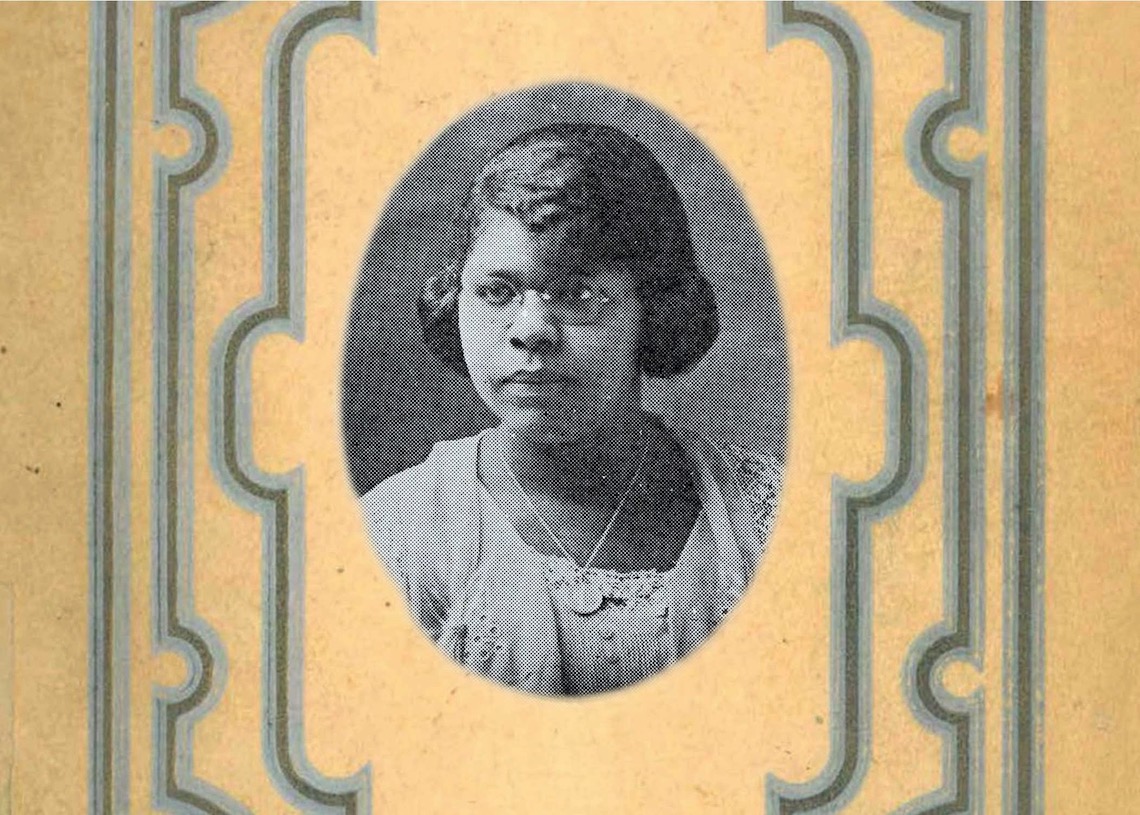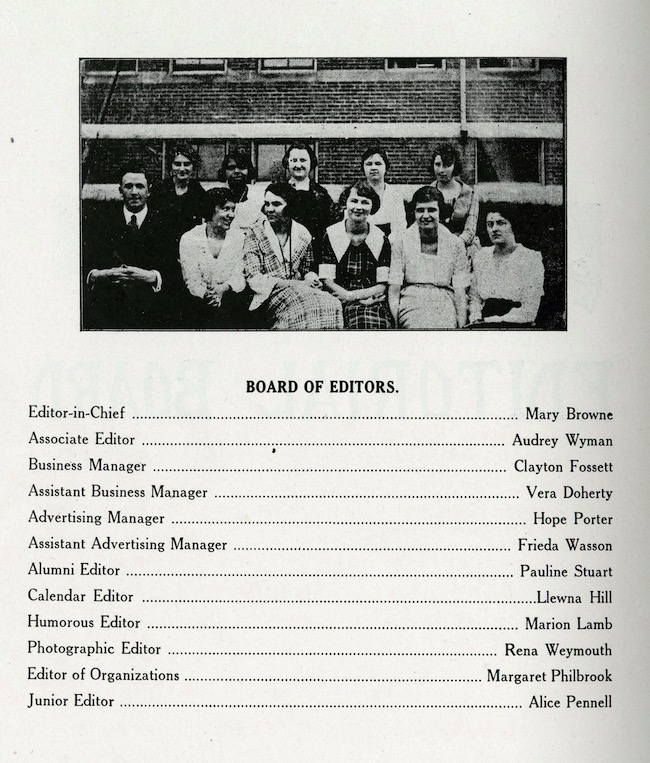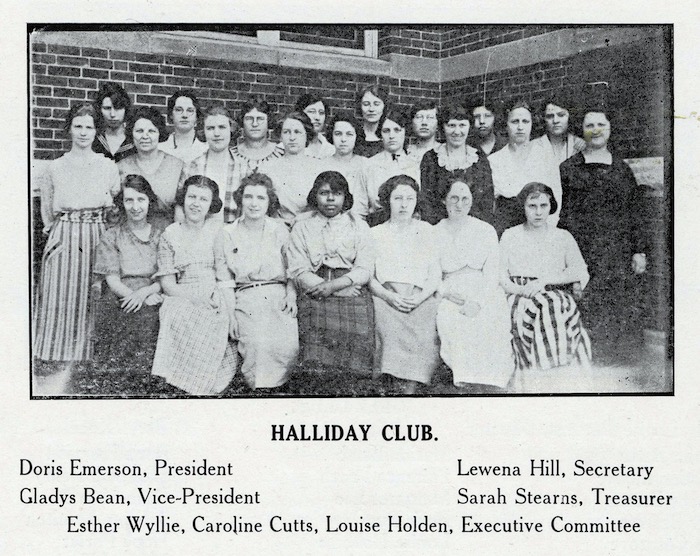Llewena Baker Hill wanted to be a teacher. Her career was short, but as long as later generations continue to learn from her example, her dream lives on.
February is Black History Month. It’s a reminder to seek out stories about people like Hill whose voices may not have been heard in their own time. Public records offer a partial view of the successes and struggles that shaped her life. Many of them can be found in the Special Collections wing of the Glickman Library Building.

Hill graduated in 1921 from Gorham Normal School. It was a post-secondary institution specializing in teacher training. The school and its campus in Gorham evolved into the University of Southern Maine.
Being Black made Hill stand out on campus. The student body was overwhelmingly white through the early decades of the 20th century. A group photo of graduates from as far back as 1900 shows a single Black woman surrounded by white classmates. That disparity would echo through many classes to follow, often separated by several years with no Black graduates at all.

A talent for music also made Hill stand out among her peers. The caption beside her photo in her senior yearbook, The Green and White, reads, “She both sings and plays the piano. These are great accomplishments and will make life sunshiny, not only for her, but also for others.”
The yearbook goes on to show Hill’s busy social schedule. She served as secretary of the Halliday Literary Club and editor of yearbook’s calendar section.
Hill’s drive to shape her community extended beyond campus. While still a student in 1920, she was one of 62 people to sign an application for a charter from the NAACP to open a branch in Portland. The document is on file at the Library of Congress. Although the branch didn’t last long, it began a stop-and-start discussion that resumed with another organizational attempt in 1947. That second iteration lasted 12 years. The branch finally took permanent root after reorganizing again in 1964.
Hill knew her activism had her parents’ support because her mother was there to sign the charter application alongside her. Sarah Hill had a long history of civic engagement as a member of the Black women’s club movement. Her election in 1915 to regional vice-president of the Northeastern Federation of Women’s Clubs was important enough for coverage by New York Age, a newspaper written primarily for Black readers.
After graduation, the younger Hill set out to make a name for herself in her chosen field. A Gorham Normal School course catalog that was printed shortly after she entered the workforce includes her in an update on alumni. She’s listed as holding a teaching position for Grades 6-8 in North Scituate, R.I. By the time the next edition of the college yearbook came out at the end of the 1921-22 school year, another alumni update placed her at a teaching job in Portland.

Hill’s teaching days were behind her by 1924. A Portland city directory for that year lists her job as “elevator girl” at an office building and she lived with her parents at the same home where she grew up at 35 Forest St. She married Oscar Mathews in 1926 and they would eventually move into a home a few doors down from her parents.
The Mathews family was set to grow in 1941. Twins James and Anna-Ruth were born on December 17, but the pregnancy was hard. Just a few days after Christmas, Llewena Baker Hill Mathews died from complications of childbirth. She was 41 years old.
Her son shared memories of his family in a 2001 interview as part of an oral history project about Portland’s African American community. He talked about being raised in South Portland by his aunt and uncle on his father’s side of the family. His information about his maternal background was limited.
When asked to describe his birth mother, Mathews said, “She was an accomplished pianist, and she also was attempting to become a school teacher, but at the time Black school teachers were not hired.”
Despite never getting to know his mother, she and Mathews shared a similar commitment to work for social change. He served as president of the NAACP’s Portland branch from 1971 to 1976.

